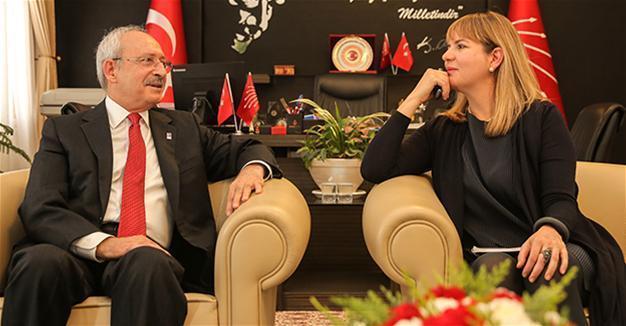CHP leader: Political responsibility for terror falls on the government
Cansu Çamlıbel - ANKARA

The government should take political responsibility for the failure to prevent terror attacks in Turkey, according to the country’s main opposition leader.
“The terrorists are, in fact, being followed,” Republican People’s Party (CHP) leader Kemal Kılıçdaroğlu told daily Hürriyet.
“The intelligence agencies have the photos of these [terrorists], they know what they look like. How can they travel around Istanbul for 12 hours before detonating a car in the heart of the city? The government should explain this,” Kılıçdaroğlu said.
The main opposition leader was referring to twin attacks in Istanbul’s Beşiktaş on Dec. 10, in which 44 people, including 36 police officials and eight civilians, were killed. An offshoot of the outlawed Kurdistan Workers’ Party (PKK) later claimed the attack.
The interview with Kılıçdaroğlu was done before another car bomb attack in Kayseri on Dec. 17, which killed 14 people.
“The government should answer the questions in everybody’s minds,” said Kılıçdaroğlu.
“Who will bear the political responsibility for this? The government, of course. Who encouraged the terrorists? If the explosives are coming from abroad, how can these terrorists go through this country’s borders with the explosives? Who is in power but does nothing but mourn after the dead? If you can’t question these, you cannot stop terrorism,” he said.
Nevertheless, the main opposition leader said it “will not be right to say that the government is turning a blind eye to terrorism.”
“We need solid evidence to say such a thing, but we must question the situation,” Kılıçdaroğlu added.
“We must discuss what the intelligence weakness is. Why can’t the state know beforehand about terror attack plans? What is there deep in the state, who controls what, and how much?” the CHP leader asked.
Kılıçdaroğlu said he would not be doing his job “if we cannot publicly raise such questions,” recalling two earlier terror attacks: an Oct. 10, 2015, attack in Ankara which killed more than 100 and the July 20, 2015, attack in Suruç that killed over 30. Militants of the Islamic state of Iraq and the Levant (ISIL) are on trial for both attacks.
“Had any precautions been taken in those attacks?” asked Kılıçdaroğlu. “No. Why? We were headed for an election at the time. Now a referendum for a shift to a presidential system is on the agenda and these happen. When rallies were held in 81 provinces in the wake of July 15 [failed coup attempt] there was not terror; where did this suddenly pop up from?”
The main opposition leader also criticized the ruling party’s efforts for a change to a presidential system from the current parliamentary one, and the support from opposition Nationalist Movement Party’s (MHP) and its leader, Devlet Bahçeli, on the efforts.
“Mr. Bahçeli on June 12 condemned in the harshest words those who said he had a deal [with the government] for a shift to the presidential system,” said Kılıçdaroğlu.
“Now he should come out and tell on what grounds he supports [the presidential system]. Some say ‘there is a de facto situation.’ If this is really the case, then the president should withdraw to his constitutional boundaries and allow the prime minister and the ministers to speak.”
The constitutional amendments, if approved, will give the president too much power, according to the main opposition leader.
“The president can even restructure the state,” Kılıçdaroğlu said. “He can abolish the Finance Ministry with a decree and establish a new ministry. He can abolish the regulatory and supervisory institutions overnight. He can create regions that include more than one provinces. These all mean an arbitrary administration. That will mean the parliament handing over its authority to one person. Mr. Bahçeli should not try to find any excuses; this means delivering Turkey to a diktat regime and starting Turkey’s process of separation.”
 The government should take political responsibility for the failure to prevent terror attacks in Turkey, according to the country’s main opposition leader.
The government should take political responsibility for the failure to prevent terror attacks in Turkey, according to the country’s main opposition leader.